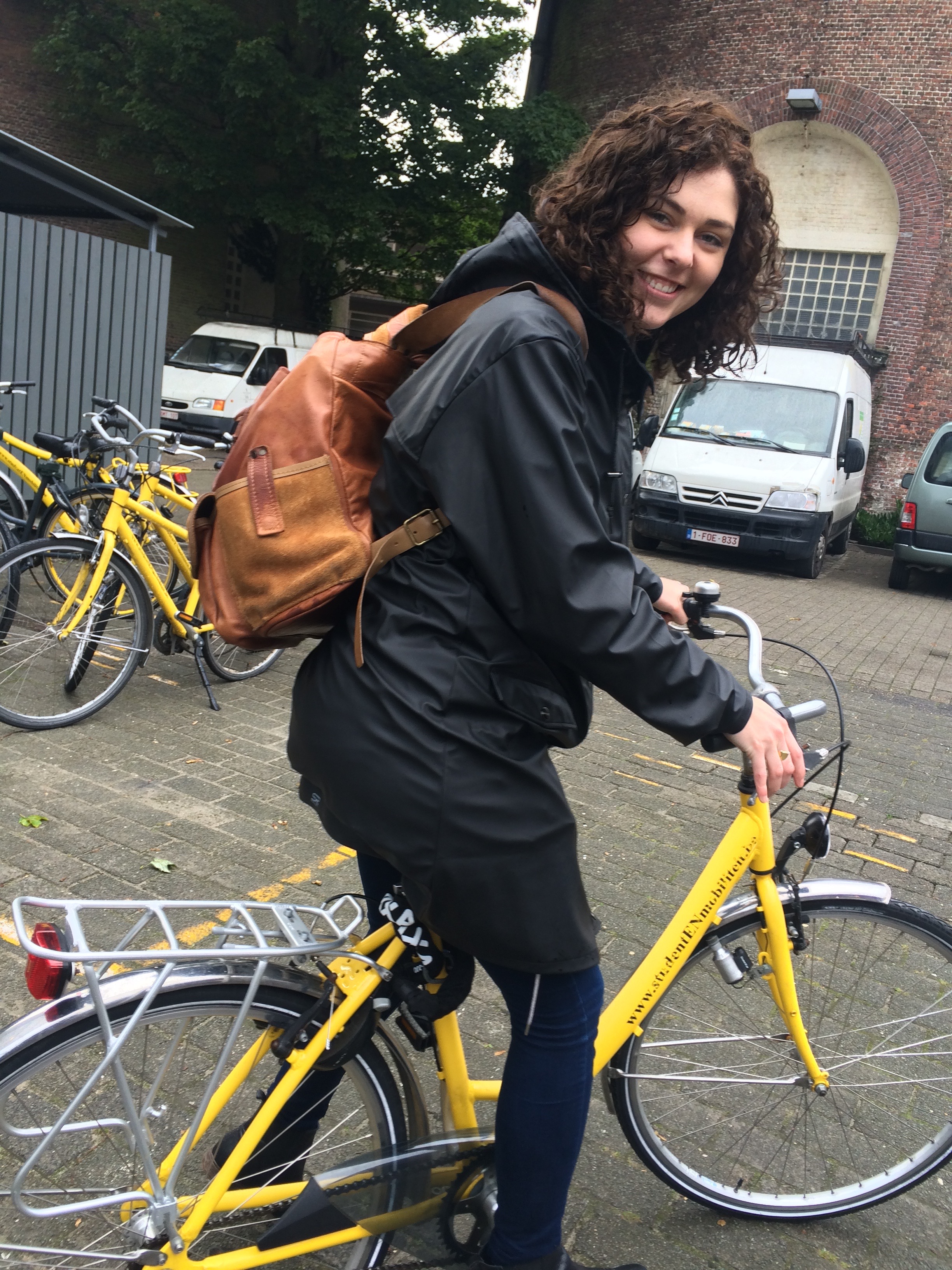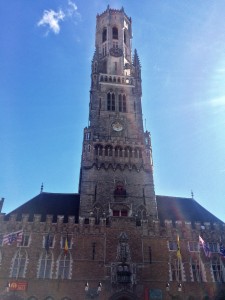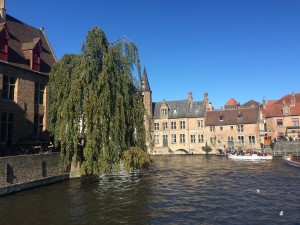Pre-departure:
The application to be accepted into the program was not as difficult as I expected. All that was expected of me was to write a two (2) page motivational letter explaining why I would like to be considered for the transition fellowship program, and submit my academic records of previous studies. Once I received the notice that I was accepted into the program, my course supervisor, Keith Dietrich, corresponded back and forth with LUCA School of Arts to agree on the course requirements once I arrive. I was also asked to send documents to the administrative staff from LUCA (including a certified copy of my passport and ID). I could choose between LUCA in Gent and LUCA in Brussels. I decided on Gent, as I liked the idea of living in a smaller city compared to Brussels.
Looking back, I would advise anyone making the decision to consider elements like language, and course interests. I am lucky that as an Afrikaans speaking person, the “Vlaanders” area of Belgium which includes Gent, makes use of Flemish which is easy to understand if you speak/understand Afrikaans. Brussels on the other hand is mainly French speaking.
The greatest struggle I encountered before I left, was to find accommodation for the period of my stay abroad. The fellowship program does not guide you with finding housing, and as the school is not part of the University, student housing is not an option. I started to search for possible accommodation as soon as I received the go-ahead that I am accepted. It took me two (2) months to find an appropriate address, which is not too expensive or outside the city-center. There are various websites that offers “student rooms”, and “studios” once you start searching. There are also options to rent a room in a shared house (like a digs). My concern was, however, that I would not know the students and might be unhappy in a shared space (as I like some time to myself). The criteria to find the ‘perfect’ accommodation depends on you. I would advise anyone that is traveling to a winter destination to make sure the rental agreement includes: double windows; heating (gas) & wi-fi. I managed to find a lovely studio room, with my own kitchen and bathroom for only 280 euro. The average price for a room while I was searching varied from 250 euro to 450 euro per month. It is possible to find a great room, but you have to endure through the process and send out emails daily! Do not fall for any Internet scams by paying deposits etc. in advance; if it is possible rather arrange to pay upon arrival.
The second greatest difficulty before the departure was of course the visa application. I had to apply for a visa type-D as it is a long stay (over 3 months). The Belgium consulate in Cape Town handles the process well, but is very strict. So be sure to have all the documents at hand when you go to your appointment. The most important tip is to go through the list of documents at least 3 months before you depart! I had to include a “police clearance certificate” that takes up to 8 weeks to process! There is, however, alternative means to get this certificate but it works out much more expensive. The second tip regarding the visa application is to know about the extra 160 euro-handling fee for all type-D visas that has to be paid in euro to the Belgium city affairs before the visa appointment. You will also need a letter from LUCA inviting you to study there; proof of an address for the time of your stay; health insurance covering you for the length of your stay; a doctor’s certificate as well as proof of funds (more than 600 euro per month). This is not everything, be sure to double-check the list well before your appointment!
If you plan ahead and give yourself enough time, you will be able to go through the pre-departure without unnecessary stress and only be able to look forward to your adventure ahead!
Experience at Host University:
It has been a month since I first arrived in Belgium and settled into my new home for the next few months. The first two weeks are filled with excitement as you get to learn all about your new city. I allowed myself a week before the start of the new semester (mid September) to settle into my room and find the grocery stores and bakeries around my house.
The second week was introduction week and LUCA School of Arts has made adapting into the foreign environment very easy and entertaining. All the exchange students were required to take part in the orientation week/ the “English module” which was a week of touring through various museums and city walks. This was a great experience as you get to meet all the students on exchange, and see most of the city for free with guides! The School’s foreign student administrator, Sabine de Meester, works very hard to ensure everyone knows were to go and what to expect from the experience once the academic year starts.
The second week was the start of the academic year. It only took a week to feel comfortable with the new structures and ways of education that is presented. The School is equipped with various technical workshops and mediums that are available for all students to discover and learn. Make sure to take part in as many activities as possible.
From music, to art to theatre, Gent has proved to be a cultural city with countless opportunities to get involved with! There are many museums to visit, endless corner cafes to enjoy a beer (or two), buzzing student nightlife and more. Having a bicycle has been of good value, as the city is relatively small you are able to travel back and forth quickly. Visit “studentENmobiliteit” once you have your student card to rent a bicycle for the period of your stay.
An important tip is to remember that you have to “announce your arrival” with the city of Gent within 8 days of your arrival! This is in order for you to receive a temporary residency card. (The steps of the process is available online).
That is all I have to say for now. I wish you a wonderful adventure!



